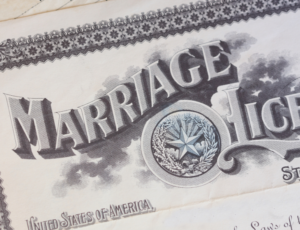 A lot of time and planning goes into staging any event. Whether it’s a trade show or a fund raiser, there is so much to consider that it can be easy to lose sight of the bottom line – costs.
A lot of time and planning goes into staging any event. Whether it’s a trade show or a fund raiser, there is so much to consider that it can be easy to lose sight of the bottom line – costs.
A big event, playing host to a large number of guests, is an expensive proposition and finding the money to cover all of the costs can be difficult. Fortunately, corporate sponsorship can help to defray many of the costs associated with a large event. But many event planners, both professional and amateur, aren’t really experienced in the art of securing corporate sponsors. Securing sponsorship for any event takes time, determination, and a bit of finesse.
That being said, finding sponsors is not beyond the reach of anyone planning a large event, and the following tips should help to guide you on your way to successful corporate sponsorship.
Step 1 – Finding Potential Sponsors
The first step to finding a sponsor for your event, is to identify companies that have a history of sponsoring similar events. Begin by thinking locally. Certainly, having a large national corporation sponsor your event would be a dream come true, but you are unlikely to secure their patronage.
Look for local businesses with a history of sponsorship, and try to find companies that are a good match for your business or your event’s theme. You are looking for businesses with a similar target market as your own, so that they will see the real value offered by sponsoring your event.
Using this criteria, begin to make a list of potential sponsors. Once that list is complete, you will need to do a bit of research. This background information will serve you in good stead down the line, and will help you demonstrate to a potential sponsor how their patronage will benefit their company.
Step 2 – Create a Sponsorship Package
Once you have identified a few potential sponsors, you will need to develop your proposal. Your sponsorship package should begin with a short mission statement, explaining why your seek the sponsorship, how that sponsorship will benefit the target company, and what that sponsorship will ultimately fund.
The body of your sponsorship package should outline your event’s budget, how the sponsor’s money will be spent, and the operational details of your event. Be sure to create different sponsorship levels, so that any potential sponsor can choose a sponsorship level that suits their company budget.
Finally, include a definite call to action. This can either be a form for the sponsor to fill out and return, or your direct contact information. When creating your Sponsorship Package, remember that you are speaking to business professionals. You aren’t writing a thesis. Stay on point, and keep your proposal short and sweet.
Step 3 – Sending Out Your Sponsorship Packages
As tempting as it may be to print up hundreds of sponsorship packages and send them to every business in the city, this tactic is both impractical and ineffective. Only send your sponsorship packages to those businesses you have identified as being most likely to sponsor your event. Personalize each package, and include a cover letter of introduction that directly addresses the target sponsor.
It will take time for your potential sponsors to review the material and contact you with a response. Be patient, but not too patient. Don’t be afraid to follow up with a phone call or email to check on the status of your request. One tip to keep in mind is that not all sponsors are created equal. Those sponsors that are pledging a significant amount of money should receive the lion’s share of your attention, as well as the prime advertising real estate at the event itself.
Remember that you are wooing these sponsors, and you must give adequate value in return for their patronage. The bigger the sponsor, the better the perks.
Finding a sponsor for your event is not easy, and it will take time. You need to start your search early in the event planning process, so you have the best chance of securing the necessary sponsors to underwrite your project. Whether it’s a product roll out, a marketing seminar, or a charity fund raiser, corporate sponsors can mean the difference between success and failure.






